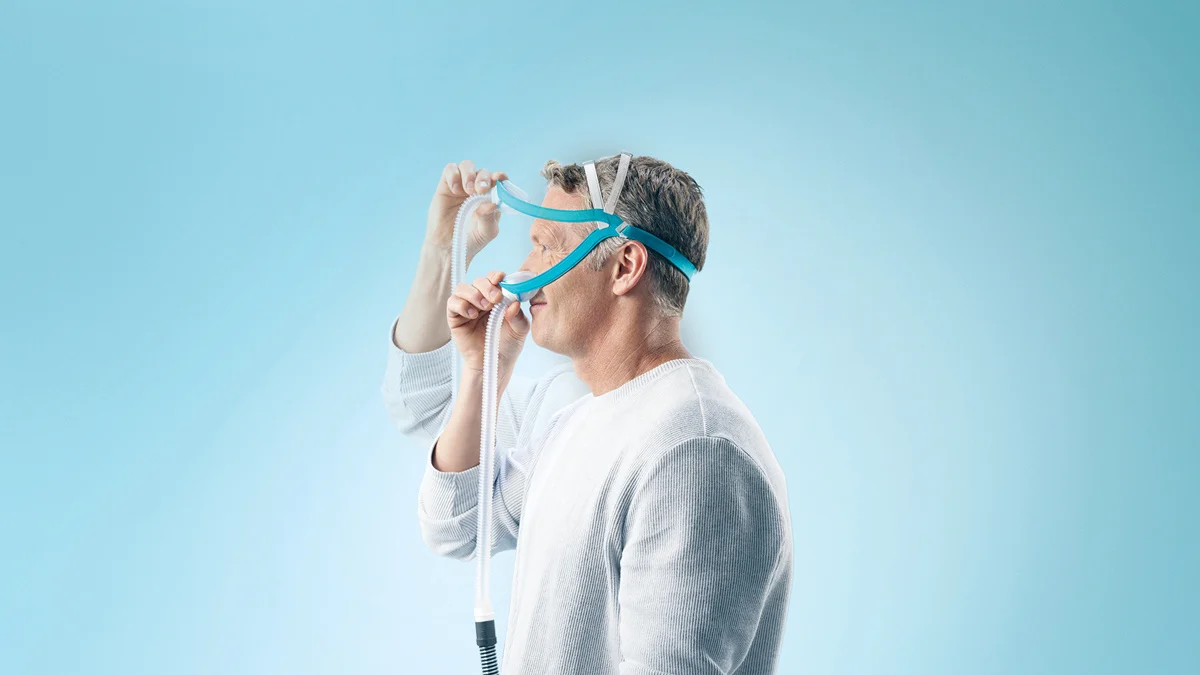How Continuous Glucose Monitoring Enhances Blood Sugar Control, Energy, and Sleep Quality
Recent advancements in diabetes management have made Continuous Glucose Monitors (CGMs) more accessible than ever. The FDA’s recent approvals now allow individuals who are at risk for diabetes, are pre-diabetic, pregnant, or simply looking to monitor their health to use CGMs. With a well-documented link between sleep apnea and diabetes risk, CGMs are particularly beneficial for those looking to take proactive steps in managing their overall health.
"With real-time glucose monitoring, you gain the insight needed to make informed choices—transforming your health, energy, and sleep one data point at a time,” says Robert Miller, Apria's Vice President of Sleep Business.
Why Monitor Your Blood Sugar?
Blood sugar levels are influenced by various factors, including diet, exercise, stress, and even the time of day. By continuously monitoring glucose levels, CGMs provide valuable insights into how different lifestyle choices impact overall health.
Key Benefits of CGM:
- Understand Blood Sugar Patterns: A CGM offers near real-time monitoring, giving you a clear picture of the fluctuations in your blood sugar levels throughout the day. This helps recognize patterns and understand how daily habits impact glucose stability.
- Optimize Your Diet: Certain foods can cause significant spikes in blood sugar, while others help maintain stable levels. A CGM enables users to track how specific meals affect glucose levels, making adjusting dietary choices to stay within a healthy range easier.
- Enhance Exercise Performance: Blood glucose levels fluctuate during physical activity—some workouts may cause a temporary spike, while others can lead to a drop. Monitoring glucose levels before, during, and after exercise allows for better meal planning and workout adjustments to maintain optimal energy levels.
How CGMs Work
A Continuous Glucose Monitor consists of a small sensor inserted into the arm or abdomen. This sensor measures glucose levels in the interstitial fluid and transmits readings every few minutes to a connected device. The real-time data allows users to track trends, receive alerts for spikes or drops, and make proactive adjustments to maintain balanced blood sugar levels.
CGMs and Sleep Quality
For individuals with sleep disorders or those at risk of diabetes, monitoring glucose levels is particularly beneficial.
- High Blood Sugar and Sleep Disruptions
Elevated blood sugar levels cause the kidneys to work overtime, leading to frequent urination. This results in multiple nighttime awakenings, disrupting sleep quality. High glucose levels can also lead to headaches, increased thirst, and fatigue, making it harder to fall and stay asleep.
- Low Blood Sugar and Sleep Disturbances
Going too long without eating or having an imbalanced medication routine can cause blood sugar levels to drop during the night. This can lead to nightmares, night sweats, irritability, and confusion upon waking. CGMs help detect and prevent these fluctuations, leading to more restful sleep.
CGM Options for Monitoring
If you have been diagnosed with diabetes or pre-diabetes, many CGM devices may be covered by insurance through Byram Healthcare. For those without a formal diagnosis but still interested in tracking their glucose levels, products like the Dexcom Stelo are available for purchase through ApriaHome.
By incorporating a CGM into your health routine, you gain real-time insights into your glucose levels, helping you make informed choices that improve overall well-being, energy levels, and sleep quality. Whether you are managing diabetes, are at risk, or are simply focused on optimal health, a CGM can be a game-changing tool in proactive health management.
References
Mayo Clinic Staff. “Blood Sugar Testing: Why, When and How.” Mayo Clinic, January 16, 2024. https://www.mayoclinic.org/diseases-conditions/diabetes/in-depth/blood-sugar/art-20046628.
Pacheco, Danielle. “Lack of Sleep and Diabetes.” Sleep Foundation, October 26, 2023. https://www.sleepfoundation.org/physical-health/lack-of-sleep-and-diabetes.
Pacheco, Danielle. “Sleep and Blood Glucose Levels.” Sleep Foundation, October 26, 2023. https://www.sleepfoundation.org/physical-health/sleep-and-blood-glucose-levels.
“Sleep Apnea & Diabetes: Understanding the Connection.” Byram Healthcare, February 23, 2024. https://www.byramhealthcare.com/blogs/sleep-apnea-and-diabetes-understanding-the-connection.
LEGAL DISCLAIMER: Material in this newsletter is provided for general health education and informational purposes and to provide references to other resources only; it may not apply to you as an individual. While Apria Healthcare believes that the information provided through this communication is accurate and reliable, Apria Healthcare cannot and does not make any such guarantee. It is not intended to be a replacement for professional medical advice, evaluation, diagnosis, services or treatment (collectively, “medical treatment”). Please see your healthcare provider for medical treatment related to you and your specific health condition(s). Never disregard medical advice or delay seeking medical care because of something you have read on or accessed through this website. Reading this newsletter should not be construed to mean that you have a healthcare provider/patient relationship.






